SGGP
Although the financial “health” has improved, the capital adequacy ratio (CAR) of commercial banks (CBs) is still quite thin. Therefore, the charter capital increase activity will continue to be promoted by CBs in 2023, with the aim of increasing resistance.
 |
| SHB has just sold SHB Finance to a foreign investor (transaction at SHB Finance). Photo: MINH HUY |
Rapid capital increase
According to financial data providers, the CAR of commercial banks in Vietnam is quite low compared to the region: only 9.04% (including the group of state-owned commercial banks: Agribank , Vietcombank, VietinBank, BIDV) and 12.29% (group of private commercial banks). Meanwhile, in many countries in the region such as Indonesia, Philippines, Singapore, Thailand..., the average CAR fluctuates from 17% to 22%. Although the CAR ratio is "thinner" than private joint stock commercial banks, the group of state-owned commercial banks accounts for more than 50% of the country's credit market share. That is also the reason why the State Bank (SBV) recently approved the increase of charter capital at Vietcombank from VND 47,325 billion to VND 55,891 billion through the form of issuing shares. It is expected that after the successful issuance, Vietcombank will become the bank with the second largest charter capital in the system, after the private joint stock commercial bank VPBank.
Similarly, it is expected that by the end of June 2023, the National Assembly will also vote to approve the plan to increase capital by VND 17,100 billion for Agribank in the 2023-2024 period to about VND 51,430 billion. Accordingly, this year, Agribank will be supplemented with about VND 6,750 billion in capital, the rest will be transferred to next year. VietinBank's General Meeting of Shareholders also approved the plan to increase charter capital this year from VND 12,330 billion to about VND 66,000 billion; BIDV also plans to increase charter capital to more than VND 61,557 billion this year through 2 rounds of share issuance...
In addition, the State Bank has also approved private commercial banks to increase their charter capital through many options. Specifically, TPBank has just been approved to increase its charter capital by a maximum of nearly VND 6,199 billion in the form of issuing shares, raising its charter capital to VND 22,000 billion. ABBank has also just completed the issuance of shares to pay dividends to shareholders, raising its charter capital to more than VND 10,350 billion; ACB has also just increased its charter capital from VND 33,774 billion to VND 38,840 billion through issuing shares to pay dividends in 2022; HDBank has been approved by the State Bank to pay dividends in shares at a rate of 15% and increase its charter capital to over VND 29,200 billion from VND 25,303 billion...
In addition to the above banks, there are currently nearly 20 other commercial banks planning to increase their charter capital this year, most of which will pay dividends in shares. If the capital increase plan is successfully implemented by the banks, from now until the end of the year, the charter capital of the banking system will increase by about 163,000 billion VND, equivalent to an increase of 26.7%.
Regarding the capital increase, Agribank's leaders said that the additional capital will not only improve financial capacity, creating a basis for the bank to expand its scale of operations, ensuring its leading role in providing capital in the agricultural sector, but also help Agribank improve its credit rating and increase its surplus value when equitizing. "The capital increase this year for Agribank is very urgent to ensure credit growth in the year at the level of 7.5% that the State Bank assigned at the beginning of the year.
Otherwise, Agribank's credit growth will only increase by 3.5%," the bank's representative shared. Mr. Pham Quang Dung, Chairman of the Board of Directors of Vietcombank, also said that increasing charter capital will create conditions for Vietcombank to expand its business operations, meet the capital needs of the economy and invest in transformation projects to improve the bank's management and operational capacity.
Taking advantage of foreign capital flows
In fact, over the years, commercial banks have made plans to increase capital, but some banks have only completed part of the plan. In 2022 alone, 27 commercial banks have plans to increase capital, but only 15 commercial banks have successfully increased capital. Therefore, in addition to relying on domestic resources, commercial banks are also promoting the attraction of foreign capital to increase capital. Specifically, in April this year, VPBank received a deposit of VND 3,590 billion from the sale of 15% of capital to SMBC Bank (Japan) and it is expected that after completing the procedures, around July 2023, VPBank will also receive an additional VND 32,310 billion.
VPBank leaders said that with nearly VND36,000 billion earned from the capital sale, the bank will increase its capital buffer, helping to expand its business scope, meeting the diverse needs of individual and corporate customers, including FDI customers.
SHB has also just completed the transfer of 100% of SHBFinance's charter capital to Krungsri Bank (Thailand), and is expected to receive approximately VND1,800 billion. SHB said that the agreement will bring a significant capital surplus to SHB's shareholders as well as improve its financial capacity and position. In addition, Vietcombank is planning to issue 307.6 million shares privately to foreign financial investors; BIDV also plans to offer 455.3 million shares privately...
- Dr. NGUYEN TRI HIEU, Banking and finance expert:
Thick buffer will have less loss
Increasing bad debt poses a potential risk to system safety. In addition, the CAR ratio of many commercial banks is not only low, but also improves slowly compared to the region. Banks will have to face the problem of asset quality in the coming time, in which the pressure of increasing bad debt and increasing provisions will be relatively large. Therefore, strengthening the "buffer" of capital will also help banks to suffer less losses when risks occur.
Source




![[Photo] Government holds a special meeting on 8 decrees related to the International Financial Center in Vietnam](https://vphoto.vietnam.vn/thumb/1200x675/vietnam/resource/IMAGE/2025/11/04/1762229370189_dsc-9764-jpg.webp)








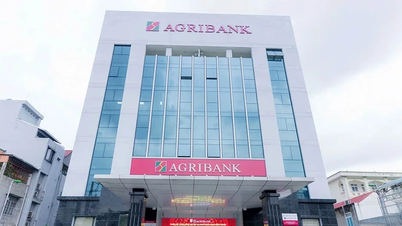








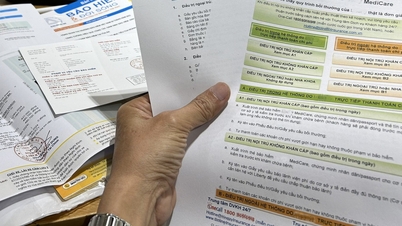


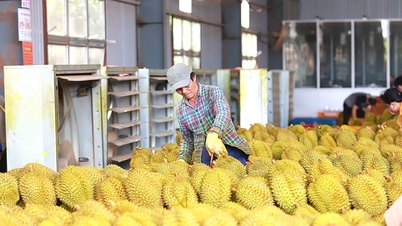






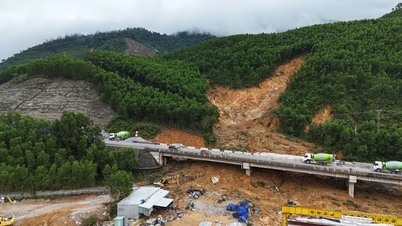




















































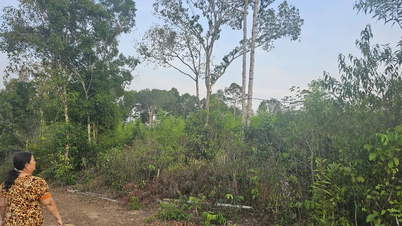
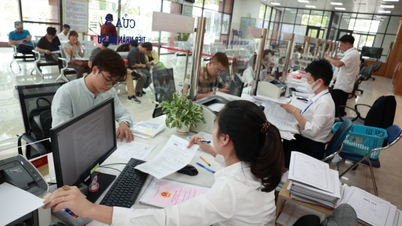



















Comment (0)